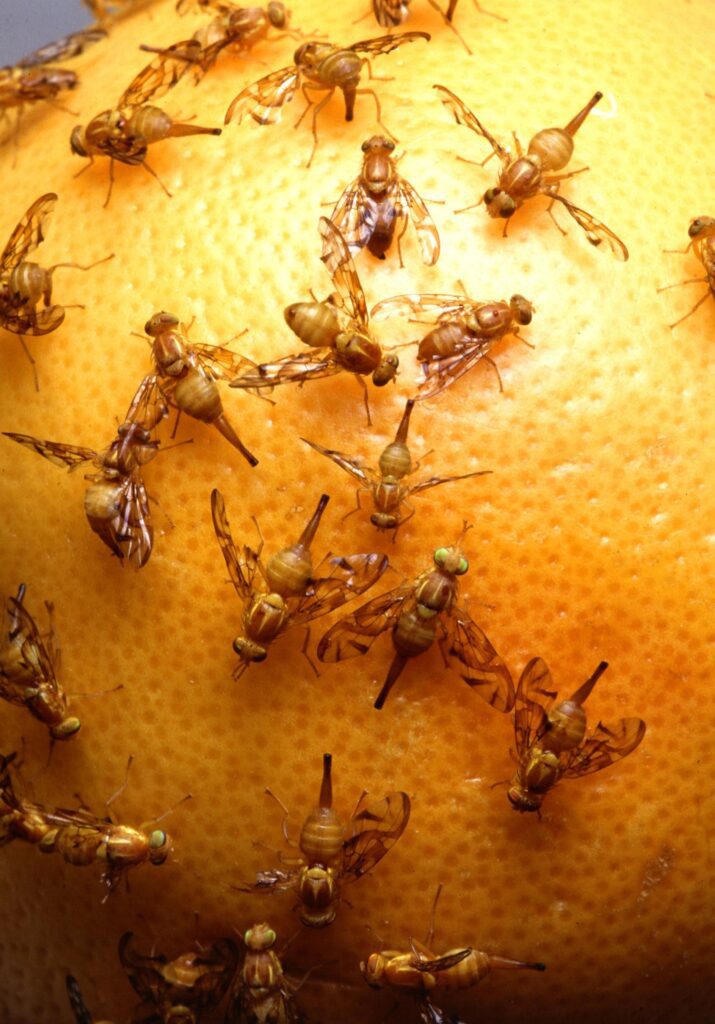
“Identify the fruit fly species invading your property with Vanquish Pest Control. Our team specializes in accurate extermination, offering expert pest control for the food industry to ensure a clean, pest-free environment.
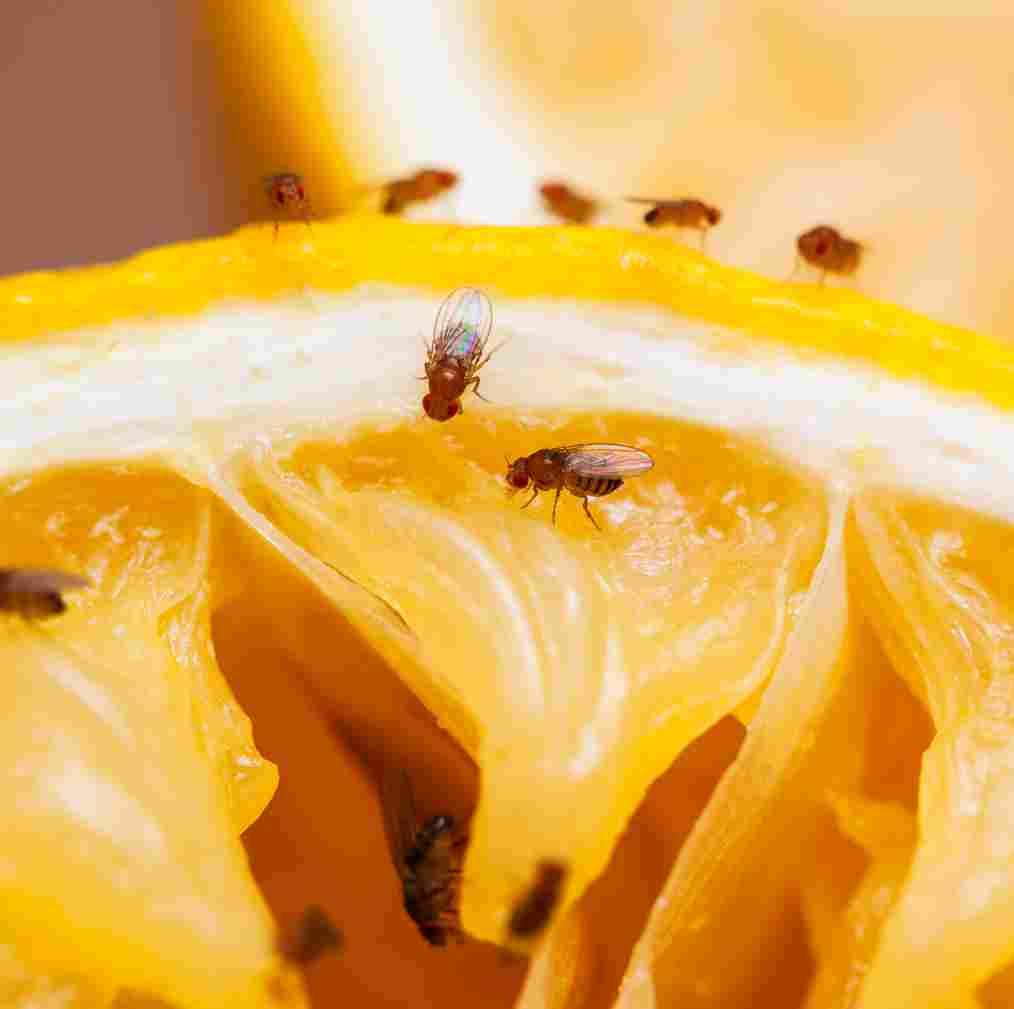
Common Fruit Flies are small, about 1/8 inch long, with red eyes and tan bodies. They are attracted to ripening or decaying fruits and vegetables. Often found in kitchens, they breed quickly and can become a nuisance, contaminating food and surfaces.
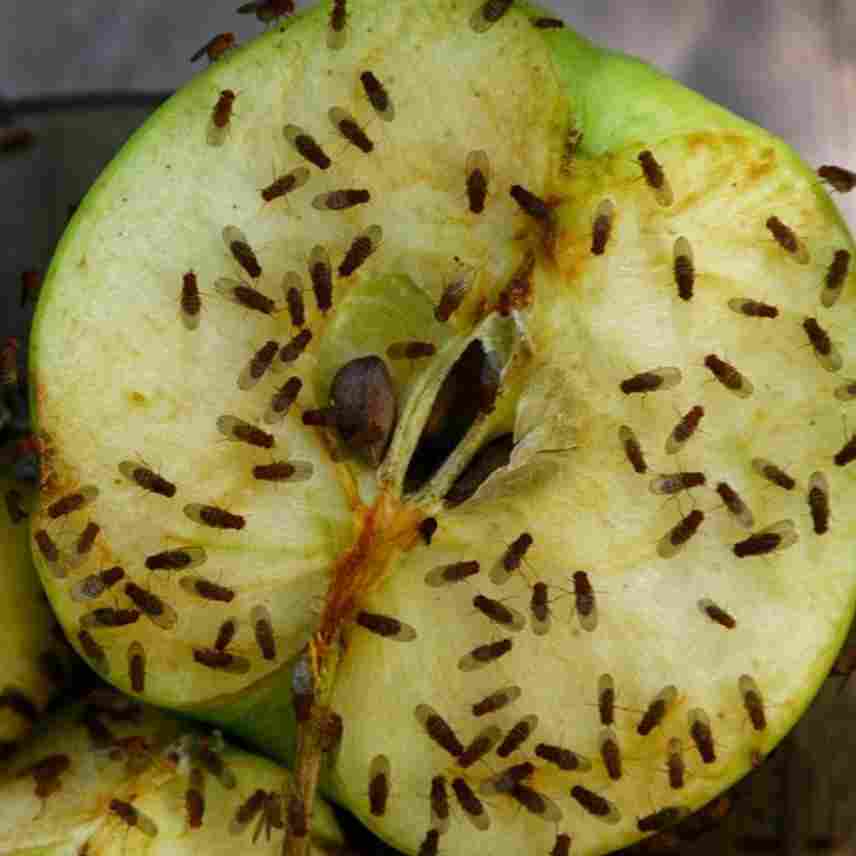
Dark-eyed Fruit Flies are similar in size to the common fruit fly but have darker eyes and a slightly darker body. They are attracted to decaying organic material, including overripe fruits and vegetables, and are commonly found in drains, garbage disposals, and moist, organic-rich areas.
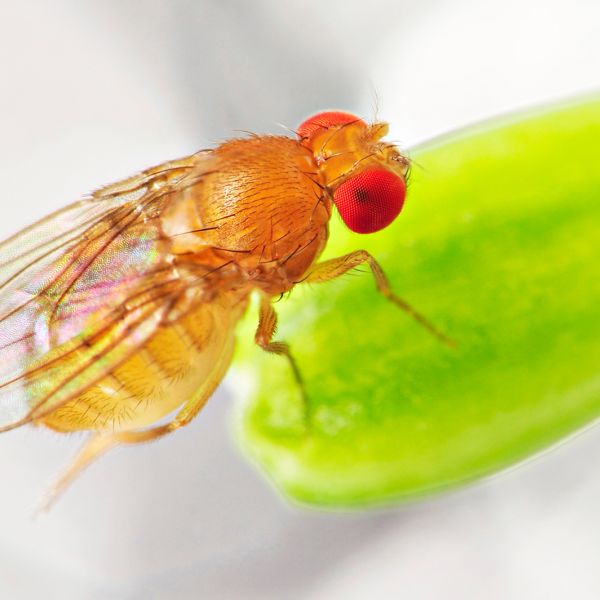
Vinegar Flies are slightly larger than common fruit flies, with a body length of about 1/8 inch and red eyes. They are attracted to vinegar, fermented liquids, and overripe fruits. Often found in kitchens and food preparation areas, they can quickly become a persistent problem if not controlled.
Fruit fly infestations can lead to contamination of food and the spread of harmful bacteria, posing significant health risks. Learn about the dangers and how to protect your home from these persistent pests. In addition to fruit flies, many homeowners also face issues with ants, making ants extermination an essential part of a complete pest control strategy.
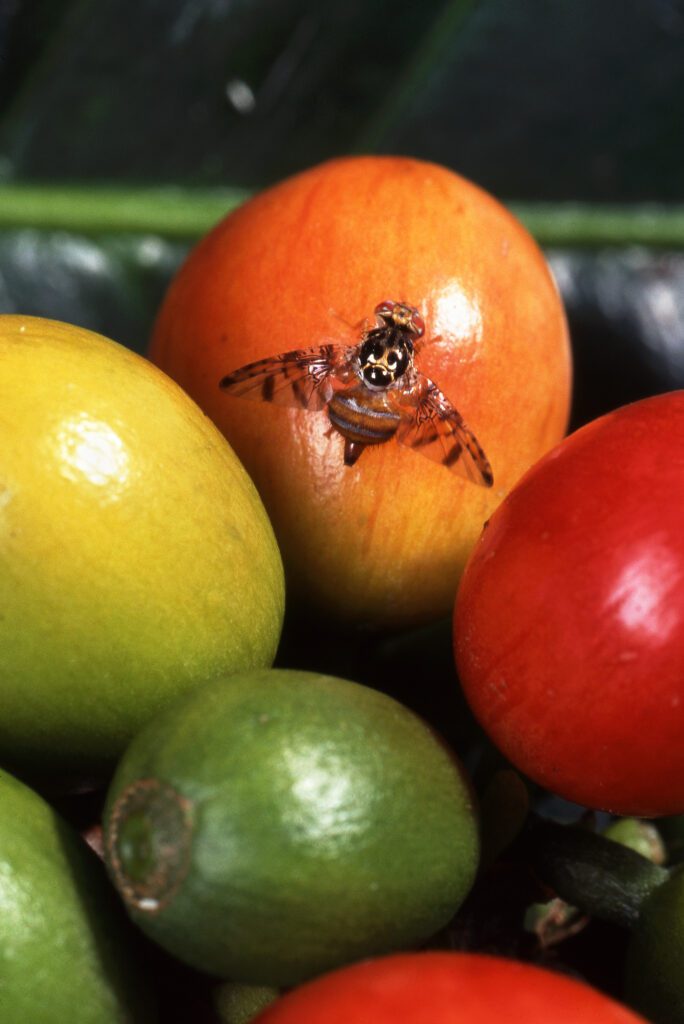

Our team has received numerous industry awards, highlighting our commitment to excellence in pest control.
We are fully licensed and certified, ensuring that our methods meet the highest standards of safety and effectiveness.
Our pest control strategies are customized to your specific needs, offering personalized solutions for optimal results.
Our thorough inspections identify the root causes of infestations, enabling targeted and effective treatments.
Our team consists of highly trained and experienced technicians who are experts in their field.
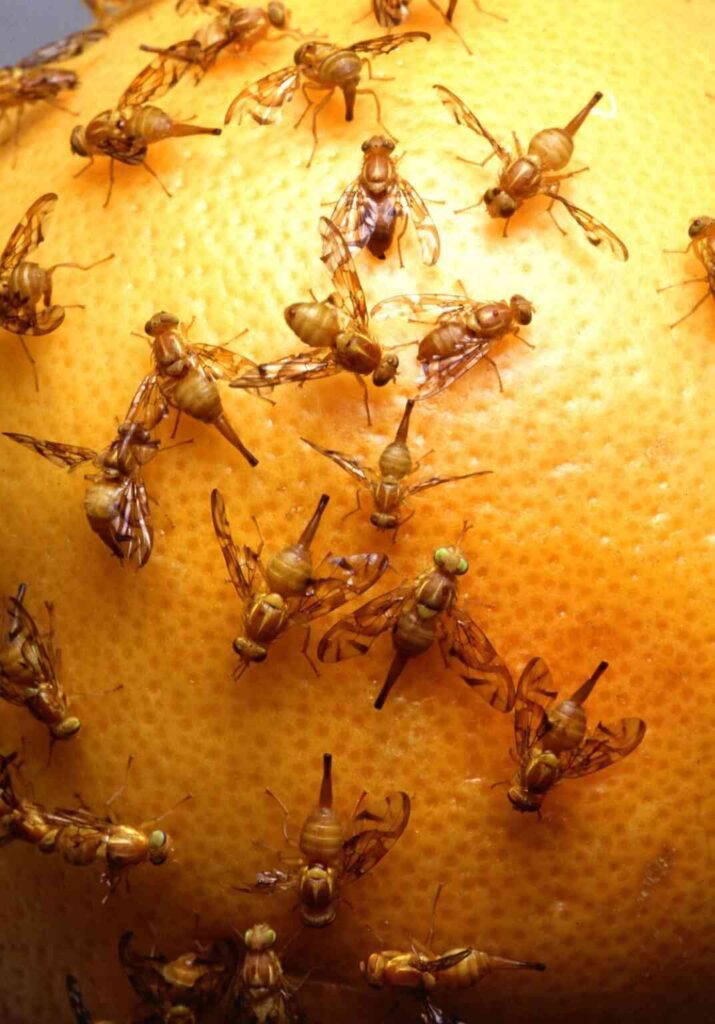

Years of Experience

Happy Customers

Award Won


Vanquish Pest Control proudly services Brampton, Toronto, the GTHA and its surrounding areas with our mission to ensure that your space – be they home or business – remain healthy and safe.
Copyright © 2025 Vanquish Pest Control. All Rights Reserved.